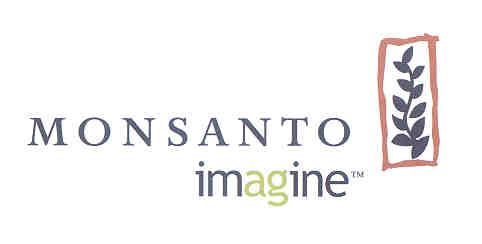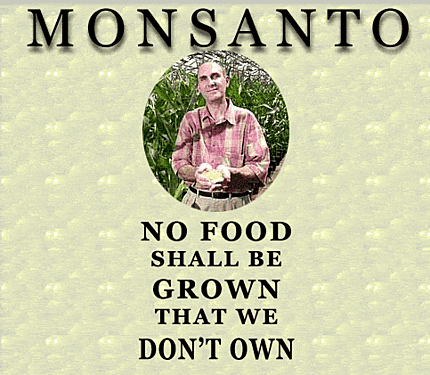Corporation Control
Jonathan Wang '10
As in many works of cyberpunk and other fiction concerning technology, huge, multinational corporations control the flow of food and its chemical or genetic manipulation. A rise in industrialization and technology often accompany a company's rise to monopoly or unparalleled wealth, and a symbiotic relationship exists between brand name and technology. The wealth behind companies allows the technology to expand, inspires it to progress, and forces it to improve; with the onset of advanced information technology and transportation networks, corporations work towards a sort of omnipresence, a multiple presence in as many places as possible. The commercial/chemical manufacture of high fructose corn syrup in Japan, starting in the 1970s, would not have been possible without the need for a liquid, synthetic sweetener with a unrealistic shelf-life and unlimited customizability. Artifical preservatives and binding agents would not have been so thoroughly researched and tested if not for the food distributors' dire need to keep food fresh while delivered over impossibly long distances. Yet, companies must adapt to changing technology as well; the introduction of colors and dyes meant that different brand names had to struggle to maintain that their food was, in fact, the best.
 Companies are often responsible for the sale of food that is not healthy or sustainable, and spreading it to all nations of the world. Products were heavily preserved so as to prevent the peril of perishable profits that plagues food providers. There are few other industries where the very product actually degrades into waste in a short amount of time, and so food corporations in particular work towards preservation technology in order to improve their chances. Similarly, food companies must also grapple with the fact that people have limits on their food intake; such inelastic demand means that different corporations compete creatively and culturally to capture consumers' attention. The use of culture is very important, since popular advertising and amiable reputations mean that precious stomach space would go to one company as opposed to a similar competitor's, and the commodification of food and centralization of growth means that companies are only distinguished by their brand and label, rather than their product.
Companies are often responsible for the sale of food that is not healthy or sustainable, and spreading it to all nations of the world. Products were heavily preserved so as to prevent the peril of perishable profits that plagues food providers. There are few other industries where the very product actually degrades into waste in a short amount of time, and so food corporations in particular work towards preservation technology in order to improve their chances. Similarly, food companies must also grapple with the fact that people have limits on their food intake; such inelastic demand means that different corporations compete creatively and culturally to capture consumers' attention. The use of culture is very important, since popular advertising and amiable reputations mean that precious stomach space would go to one company as opposed to a similar competitor's, and the commodification of food and centralization of growth means that companies are only distinguished by their brand and label, rather than their product.
Corporations use another trick to maintain profits in a naturally limited industry; thanks to their wealth and ubiquity, multinationals can focus intently on turning their excess into profits. An inferior product can be sold under a well-advertised, well-trusted name, and this is the only way that some companies are able to twist four cents of corn into four dollars of cereal. A vast company's control over a huge transportation network allows it the ability to establish a nationally known, trusted, and purchased name, such as Kraft, General Mills, or Hostess, further enhancing the cultural effect of slick advertising and brand name emphasis. With their means of advertising, corporations seek to control information available, whether to prevent bad press or suggest good qualities, and remain in control of the money. A vast power network coupled with a vast information network: just like so much cyberpunk fiction, an enormous, far reaching corporation controls the key ingredients for that which the population loves and craves.


The Monsanto corporation is a nearly century old agricultural company that controls an enormous amount of industrialized monoculture in the US through its near monopoly over genetically engineered seeds. Many chemical, pesticidal, and otherwise artificial soil additives were only researched to the extent that they were because of Monsanto's money and corporate desire. They attempt to maintain a farmer-friendly atmosphere, but often draw fire from anti-globalization and environmental activists for their over aggressive lobby policies and seemingly heartless approach towards combining science and food. 
This power easily corrupts, and food company lobbyists have drastically altered the economic landscape of agriculture. Enormous subsidies are provided for the industrialized monoculture operations that feed directly into processing plants' greedy need for commodified corn and cows, disproportionately benefitting distributors like Monsanto and heavily hurting smaller, local farmers. Small time farmers, especially those interested in organic values, have a hard time dealing with a unique industry, where the basic tenets of economics holds little value and farmers fear both surplus and deficiency. As technology allows a greater greed in those in power, the effects of centralized monopolies and governmental manipulation amount to dire consequences for many.



 Companies are often responsible for the sale of food that is not healthy or sustainable, and spreading it to all nations of the world. Products were heavily preserved so as to prevent the peril of perishable profits that plagues food providers. There are few other industries where the very product actually degrades into waste in a short amount of time, and so food corporations in particular work towards preservation technology in order to improve their chances. Similarly, food companies must also grapple with the fact that people have limits on their food intake; such inelastic demand means that different corporations compete creatively and culturally to capture consumers' attention. The use of culture is very important, since popular advertising and amiable reputations mean that precious stomach space would go to one company as opposed to a similar competitor's, and the commodification of food and centralization of growth means that companies are only distinguished by their brand and label, rather than their product.
Companies are often responsible for the sale of food that is not healthy or sustainable, and spreading it to all nations of the world. Products were heavily preserved so as to prevent the peril of perishable profits that plagues food providers. There are few other industries where the very product actually degrades into waste in a short amount of time, and so food corporations in particular work towards preservation technology in order to improve their chances. Similarly, food companies must also grapple with the fact that people have limits on their food intake; such inelastic demand means that different corporations compete creatively and culturally to capture consumers' attention. The use of culture is very important, since popular advertising and amiable reputations mean that precious stomach space would go to one company as opposed to a similar competitor's, and the commodification of food and centralization of growth means that companies are only distinguished by their brand and label, rather than their product. 




